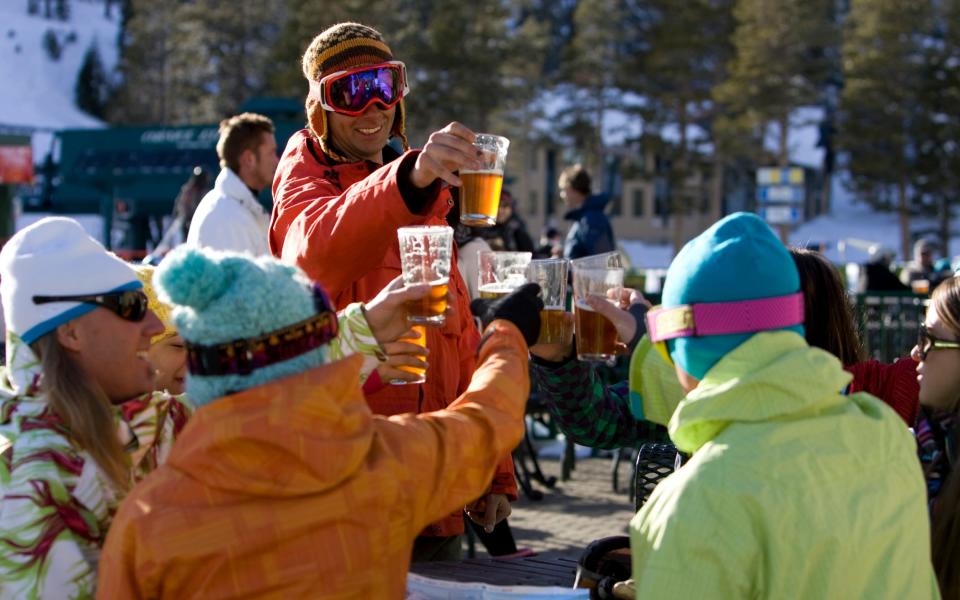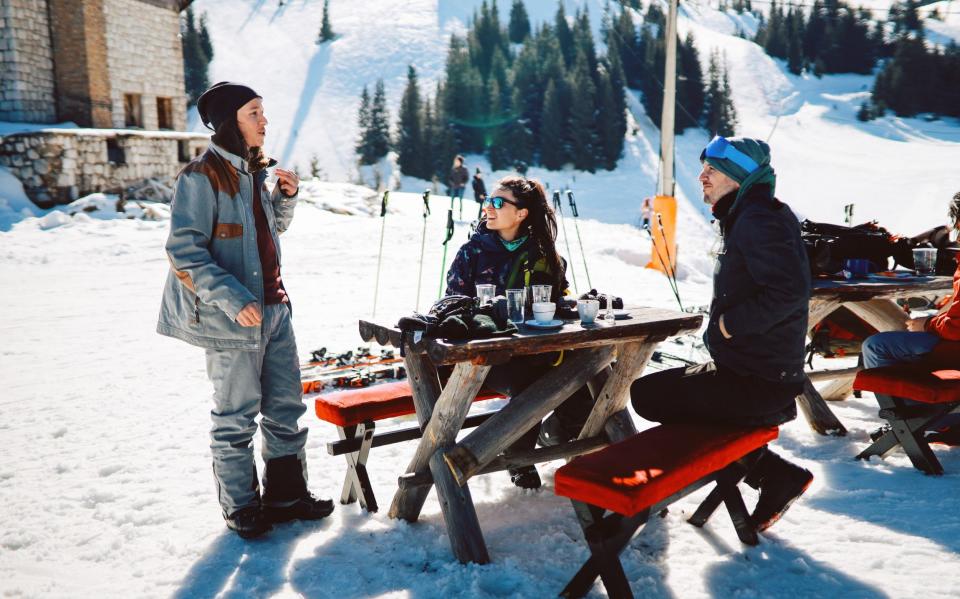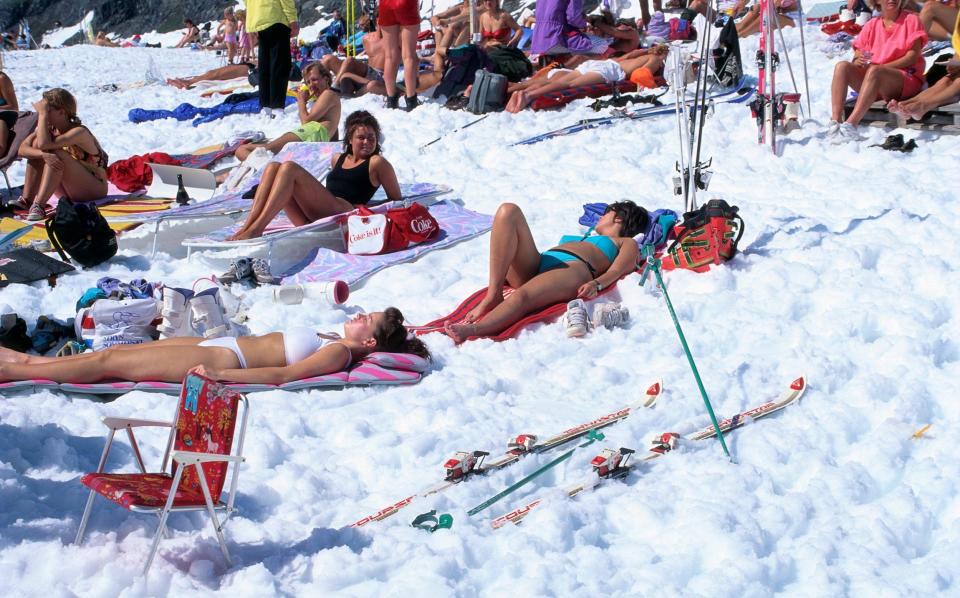I should consider myself lucky: upon graduating, I landed directly on the bottom rung of the ladder steadily ascending to my dream job. However, a burgeoning career did little to calm the pangs of jealousy that came over me when I spoke to friends who were adrift on several gap years. I grew up eagerly awaiting this rite of passage (with my eyes firmly set on the snow-capped mountains), but with my adult life galloping apace, I believed the ship had sailed.
Last year, however, chance and circumstance aligned, offering me another bite of the season’s cherry. With less than a month’s notice, I moved to France to make my ski season dreams come true. Here’s what I learned about life in the mountains behind closed doors.
1. Work hard, play harder
Is there anything scarier than someone who can barely afford to eat (the seasonal wage is still around £100 a week) and having to serve aged Bollinger to a hot tub full of multi-millionaires? After witnessing it, in properties costing over £150,000 a week, I’m starting to think no. Within weeks of arriving, I saw staff frequently using alcohol and drugs during shifts to cope with the pressures of providing such a demanding service. The more naive guests were unaware of this debauchery, while the wilder tourists actively encouraged it.
A girl at the chalet told me that she hides her work uniform in one of the kitchen cabinets. This allows him to party all night and then serve breakfast the next morning, before returning home to sleep once her guests head up the mountain. She insisted that it’s much less painful to make eggs benedict while she’s still being trolled than with a deadly hangover. A friend, whom we nicknamed Harry Potter, made a small bed under the stairs so he wouldn’t have to walk back to his accommodation after a night out.


Maximizing recovery time is essential, especially when guests have expectations that border on insanity. One group requested that a particular variety of strawberry be made available for breakfast. One unlucky driver had to make a nine-hour round trip to pick them up from a supplier in the south of France.
2. Relationships are catalyzed
Around the world, dating apps provide almost immediate access to any single or sociable person, but the catchment area of my small alpine town is confined by the mountains themselves – a few hits and it’s game over.
Budding relationships intensify with this proximity and develop over the course of the short season at an accelerated pace. I continue to be amazed at how guests, who are only here for a week, take advantage of the time to flirt.
A few weeks into my adventure, four male friends from the city came to visit on vacation. Despite their long-term relationships in London, they all connected with other women. Much to the amusement of the rest of us, one member of the group was cornered by two of these newly acquired adventures in the same bar afterwards.
Do relationships born in the mountains last? Maybe it’s too early to say conclusively, so I put my trust in my English ski instructor (let’s call him…) David and his experience: no, they generally don’t.
3. A different hierarchy applies
In the mountains, a different social order is at play: ski instructors are kings, ski patrollers are princes, bands that perform at night are court jesters, while non-skiers are mere peasants.
Certain trendy resorts attract crowds eager to be seen rather than ski: they walk to equally fabulous restaurants, as if they’ve stepped off a Tatler page. In normal life, these people, covered in furs and diamonds, usually have high status, wealth and power. They’re just weak out here.
One afternoon I saw one of my favorite pop stars drinking drinks at a bar, halfway down a black level track. I love her music, but I lost all respect for her when I realized she had taken the chairlift there and back.


However, to some extent, money will always equal power. Another group, who arrived by helicopter, confided to me, over champagne and oysters, that their concierge had offered to accompany them, even though their wives and girlfriends were with them. Another concierge I spoke to seemed traumatized as he recounted the night he was asked to call and drop off a guest’s boyfriend. Apparently she wanted to enjoy the evening and couldn’t face the phone call herself.
4. Bad behavior is normalized
Is it the altitude, the adrenaline or the majesty of the mountains? Perhaps this otherworldly winter wonderland gives people license to behave differently than they would at home. Stories of all-night parties ending in trashed chalets have become so common that I pay less and less attention to them as the season progresses.
Another ski instructor I once dated told me that he regularly asks women to put their hotel room key cards in his pocket or ask him the cost of an evening lesson. I asked David if this had happened to him: “Not yet,” he replied, looking a little disappointed.
At the more youthful end of the spectrum, I found a group of men in their thirties, all with important, well-paid jobs in the UK, doing parkour in the middle of the night, in freezing temperatures. I stood horrified watching them, in turn, run into a huge pile of snow left by the track beaters, before falling face down.


5. The economics don’t add up, but it’s worth it
During my stay here, I have met seasonal people of all ages, from teenagers to over 70 years old. The main caveat to this bright life is that, for many, the accommodation is, to put it bluntly, bleak and the economics just don’t add up. Unless accommodation and food is included in your job, you’ll struggle – a carton of eggs costs around £3.80 in Alpine supermarkets.
A group of babysitters cheerfully told me that they are crammed six to a room with a small bathroom to share. I estimate their average age to be 23 years old. They didn’t seem overly worried (most young people can only survive on pay rises from the bank of mum and dad) and their youthful optimism is admirable.
My slight maturity turned out to be a considerable advantage, both emotionally and financially. If you can afford to do it right, these can be some of the best months of your life.
For young people, it’s chaos, fueled by stressful bosses, heartbreak, and a bankrupt bank balance. But I’d bet my heated ski gloves they’ll be back next year. With my sincerest apologies in advance to my savings, I think I can do it too.